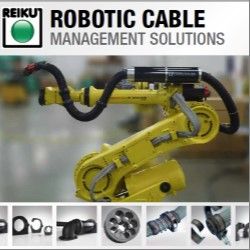Call for Participants for the ANSI Unmanned Aircraft Systems Standardization Collaborative
September Kick-off Meeting Provides Focus for Development of Standardization Roadmap
NEW YORK, Dec. 4, 2017 /PRNewswire-USNewswire/ -- The American National Standards Institute (ANSI) issued today a call for participants for its Unmanned Aircraft Systems Standardization Collaborative (UASSC). The announcement follows the UASSC's kick-off meeting held September 28 in Washington, DC.
The UASSC's mission is to coordinate and accelerate the development of the standards and conformity assessment programs needed to facilitate the safe integration of unmanned aircraft systems (UAS) - commonly known as drones - into the national airspace system (NAS) of the United States. The collaborative will also focus on international coordination and adaptability, with the goal of fostering the growth of the UAS market. The group will work to develop a standardization roadmap over the course of a year to identify existing standards and standards in development, as well as related conformance programs, define where gaps exist, and recommend additional work that is needed including a timeline for its completion and organizations that potentially can perform the work. The UASSC will not develop standards.
Subject-matter experts interested in participating in one or more of the four UASSC working groups are invited to review the working group architecture and return the sign-up sheet before December 31, 2017. The working groups will hold virtual (online) meetings twice a month with first meetings taking place in January 2018. Participation in the UASSC is open to UAS stakeholders that have operations in the United States.
The September 28 meeting drew 83 attendees from 58 organizations including industry, trade associations, standards developing organizations (SDOs), government, and others. The program included introductory remarks from the UASSC co-chairs: Earl Lawrence, director, UAS integration, Federal Aviation Administration, and Brian Wynne, president and CEO, Association for Unmanned Vehicle Systems International. Following approval of the UASSC's mission, objectives, and deliverable, discussions focused on how to organize the collaborative to develop the standardization roadmap. The group agreed that airspace, risk, and regulatory requirements associated with different use cases were key considerations. Four areas to explore were identified: credentialing, airworthiness, operations/procedures, and airspace/infrastructure. Breakout groups further identified sub-topics to consider in each of these areas.
A report of the September 28 meeting and supporting documents are available on the UASSC website. This includes a report of a May 19 preliminary meeting of stakeholders that indicated broad-based support for the UASSC and prompted ANSI to announce its establishment. Subsequent to the September meeting, an interim steering committee reviewed the outcomes and agreed on a working group structure centered on many of the more frequently mentioned use cases.
"ANSI has a track record of developing standardization roadmaps in diverse areas such as additive manufacturing, energy efficiency in the built environment, and electric vehicles," said ANSI president and CEO Joe Bhatia. "We offer a neutral forum where experts can come together to discuss the issues, particularly in emerging areas of technology when there is a need for coordinated standards activity. We look forward to fostering this dialogue on the role of standardization in addressing the challenges associated with integrating UAS into the airspace and realizing the full potential that this exciting technology offers," he said.
For more information, visit www.ansi.org/uassc.
About ANSI
The American National Standards Institute (ANSI) is a private non-profit organization whose mission is to enhance U.S. global competitiveness and the American quality of life by promoting, facilitating, and safeguarding the integrity of the voluntary standardization and conformity assessment system. Its membership is comprised of businesses, professional societies and trade associations, standards developers, government agencies, and consumer and labor organizations. The Institute represents the diverse interests of more than 125,000 companies and organizations and 3.5 million
professionals worldwide.
The Institute is the official U.S. representative to the International Organization for Standardization (ISO) and, via the U.S. National Committee, the International Electrotechnical Commission (IEC).
Featured Product

REIKU's Cable Saver™ - The Most Versatile Modular Robotic Cable Management Solution
REIKU's Cable Saver™ Solution eliminates downtime, loss of revenue, expensive cable and hose replacement costs, maintenance labor costs. It's available in three sizes 36, 52 and 70 mm.
All of the robots cables and hoses are protected when routed through the Cable Saver™ corrugated tubing.The Cable Saver™ uses a spring retraction system housed inside the Energy Tube™ to keep this service loop out of harms way in safe location at the rear of the Robot when not required. The Cable Saver™ is a COMPLETE solution for any make or model of robot. It installs quickly-on either side of the robot and has been tested to resist over 15 million repetitive cycles.
REIKU is committed to providing the most modular, effective options for ensuring your robotic components operate without downtime due to cable management.
www.CableSaver.com
